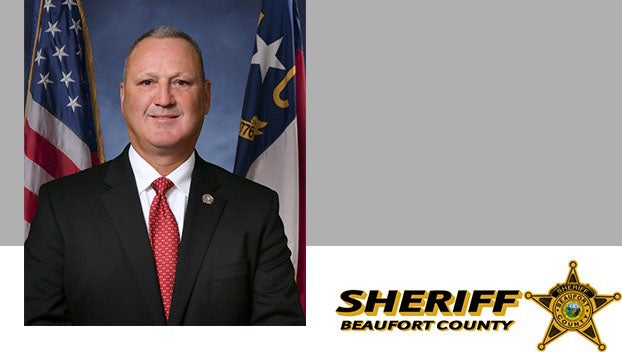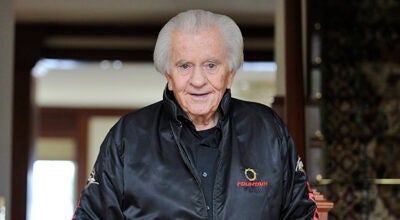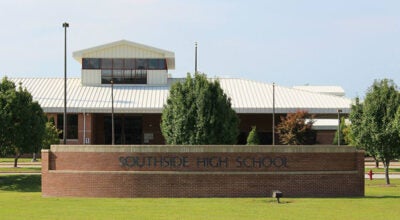Survey drops reps
Published 7:59 pm Tuesday, April 10, 2012
Both members of the N.C. General Assembly who represent Beaufort County in Raleigh were ranked in the bottom half of their chambers in effectiveness in the 2011 session, according to a survey of legislators, registered lobbyists and members of the news media who cover state government.
Rep. Bill Cook, a Republican who represents Beaufort County in the N.C. House of Representatives, was ranked 95th in effectiveness out of 120 House members.
Cook, who is not seeking re-election to the 6th District seat, is vying with Jerry Evans for the Republican nomination in the 1st Senate District race. Cook and Evans live in Beaufort County. The GOP nominee will face incumbent Sen. Stan White, D-Dare, who is seeking re-election to the post.
White, a Dare County Democrat, who represents Beaufort County in the N.C. Senate, was ranked 45 in effectiveness out of 49 senators. Sen. James Forrester, R-Gaston, died in October 2011 and was not ranked.
White and Cook were two of 42 freshmen members of the 2011 N.C. General Assembly.
The rankings were released Monday by the N.C. Center for Public Policy Research.
Republicans claimed all 10 of the highest effectiveness rankings in the state Senate and 12 of the top 15 spots in the state House, according to the survey.
President Pro Tempore of the Senate Phil Berger, R-Rockingham, and Speaker of the House Thom Thillis, R-Mecklenburg, topped the rankings.
In 2009, Democrats held a 30-20 majority in the state Senate and a 68-52 majority in the state House. The 2010 elections shifted power to Republicans, who now hold a 31-19 majority in the Senate and a 68-52 majority in the House.
In 2011, Republican legislators with previous legislative service dramatically improved their rankings, according to the survey.
On average, Republican senators moved up 20 spots in the rankings while Democratic senators dropped an average of 14 spots in the rankings. House Republicans improved their rankings an average of 49 spots, while House Democrats fell an average of 37 places.
“Being a member of the political party which has a majority in the Legislature is one of four factors that historically lead to a higher effectiveness ranking — but only one factor,” said Ran Coble, the center’s director, in a press release announcing the survey. “The other factors are how long someone serves in the Legislature, whether they chair a committee and their personal skills in moving bills successfully through the legislature.”
Freshmen legislators are often not considered to be as effective as those who have served previously, however, some freshmen legislators can, occasionally, be highly ranked.
In 2009, no freshmen legislators were appointed chairmen of any standing committees, but in the 2011 legislative session, 11 Republican senators were appointed standing committee chairmen.
Coble said that is why freshmen were not clustered at the bottom of the rankings this year.
The most effective freshman House member in the survey was Thomas O. Murry, a Wake County Republican, who was ranked 30 in effectiveness. The most effective freshman senator was William P. Rabon, a Brunswick County Republican, who was ranked 18 in effectiveness in that chamber.
Over the years, some legislators have done well in the rankings regardless of whether their party was in power.
For example, Sens. Richard Stevens, a Wake County Republican, and Fletcher Hartsell, a Cabarrus County Republican, and Reps. Joe Hackney, an Orange County Democrat, and William C. Owens Jr., a Pasquotank Democrat, have all finished in the top 14 of effectiveness rankings, whether their party was in the majority or not.
Owens, who was ranked 14 in effectiveness in the House during the 2011 session, was the most-effective northeastern North Carolina representative. Owens is not seeking re-election. Tim Spear, a Democrat who represents Washington County in the House, was ranked 31 in effectiveness. He is not seeking re-election. Norman W. Sanderson, a Republican who represents Pamlico County in the House, was ranked 81 in effectiveness. Sanderson has chosen to seek election to the state Senate.
This is the 18th year the N.C. Center for Public Policy Research has surveyed effectiveness of state legislators. The first edition evaluated the performance of the 1977-78 General Assembly.
Sixty-three of the 120 House members responded to the center’s survey, 24 of the 49 senators, 144 of the 407 registered lobbyists who regularly work in the Legislature and are based in North Carolina and six of 22 capital news correspondents responded to the survey.





